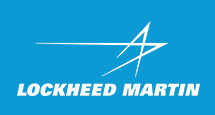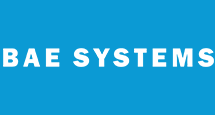Visiongain Publishes Battery Electric Vehicle (BEV) Market Report 2021-2031
17 March 2021
Visiongain has published a new report on Battery Electric Vehicle (BEV) Market Report 2021-2031: Forecasts by Vehicle Type (Passenger Vehicles, Light Commercial Vehicles (LCVs), and Heavy Commercial Vehicles (HCVs), by Battery Type (Lithium-ion Batteries, Lead-acid Batteries, and Nickel-metal Hydride Batteries) AND Regional and Leading National Market Analysis PLUS Analysis of Leading BEV Companies AND COVID-19 Recovery Scenarios.
Global Battery Electric Vehicle (BEV) market was valued at US$xx million in 2020 and is projected to reach at a market value of US$xx million by 2031. The global battery electric vehicle (BEV) market is driven by factors such as stringent government regulations regarding vehicular emission, rising consumer awareness about the use of fuel-efficient vehicles, growing innovation along with advanced technology, and growing need to minimize greenhouse gas and air pollutant emissions.
COVID-19 Impact on Battery Electric Vehicle (BEV) Market
Novel Coronavirus (COVID-19) Pandemic had a significant impact on all aspects of manufacturing, including the automotive industry, with large factories either completely shutting down or operating at production units with reduced staffing to keep their employees safe.
Manufacturing plants all over the world were shut down, showroom activity plummeted, and car sales plummeted. The global economic impact of the COVID-19 pandemic on the automotive industry is expected to be around $5.7 billion, with the European Union being the worst-affected region, with a $2.5 billion decline in the automotive industry due to supply chain instability in the face of a decline in China supplies. The Geneva Motor Show 2020, the Qatar Grand Prix, the New York International Auto Show, and the Australian Grand Prix, among others, have been cancelled or postponed around the world. Due to the Coronavirus (COVID-19) pandemic, major automotive companies such as Fiat Chrysler Vehicles, Ford, PSA Group, Volkswagen Group factories in Europe, Ducati, Tesla factory in California, BMW group European factories, Rolls-Royce, and General Motors have all halted production.
The automotive manufacturing employs 2.6 million people in Europe, with 1.1 million jobs lost due to the Coronavirus outbreak (COVID-19). Lockdowns placed by governments and numerous industrial units throughout the area to protect the health of their workers and control virus transmission culminated in a production loss of 1,231,038 units in the region.
The COVID-19 pandemic hit the globally industrialized automotive industry hard and fast. Loss of Chinese exports, large-scale manufacturing interruptions throughout Europe, and the closure of assembly plants in the United States are all symptoms. Which places a lot of pressure on a market that is still struggling with a global demand downturn, which is likely to lead to further merger and acquisition activity.
The global automotive industry has severely impacted by the impending recession, with demand falling by 12 percent to 15 percent by 2020. One of the key reasons to the market's downturn is the worldwide distribution of car manufacturers' supply chains. At the start of the outbreak, more than 300 vehicle component factories outside of Hubei ceased manufacturing, effectively shutting down the flow of car parts from China. Despite the fact that manufacturing has resumed at a reduced rate, there is a shortage of producer orders in some countries, as well as logistical issues. With the epicentre of the Coronavirus disease (COVID-19) epidemic moving from China to Europe and the United States, the effects on the automobile industry will take a long time to recover.
Market Drivers
Stringent Government Regulations Regarding Vehicular Emission
With the rise in stringent government regulations regarding the use of fuel-efficient vehicles to control the emissions across the globe, the demand of light weight vehicles is expected to increase which leads in the increased demand of BEVs.
Due to the oil prices around the world, the market for fuel-efficient cars has risen dramatically over the years. Leading to the exhaustion of fossil fuel supplies, the price of gasoline and diesel has soared exponentially, prompting customers to turn to battery electric cars. The National Highway Traffic Safety Administration ("NHTSA") has established minimum corporate average fuel economy ("CAFE") requirements for light-duty vehicles in the United States. NHTSA enforces different CAFE requirements for each manufacturer's fleet of domestic passenger vehicles, imported passenger cars, and light duty trucks, according to the rules. These reasons are increasingly increasing demand for battery electric cars around the world.
Several laws and legislation have been adopted by governments around the world to regulate vehicular pollution. Automobile makers have been forced to use new technology to tackle high pollution standards in cars as a result of these regulations. Furthermore, directives and relevant regulations issued by the European Union (“EU”) limit the volume of controlled pollutant emissions emitted by new motor vehicles and engines sold in the EU. Euro 6 emission regulations for light passenger and commercial vehicles went into effect in September 2014, setting reasonable limits for exhaust emissions in new vehicles. To fix vehicular pollution, several countries have adapted previous iterations of European or United Nations Economic Commission for Europe ("UN-ECE") mobile source emission regulations. Some countries have adopted European or American regulations that are more advanced. To limit emissions in large cities, countries such as China have adopted European Stage 5 emission standards. For gasoline cars, Korea and Taiwan have adopted strict US-based requirements.
Rising Consumer Awareness about the Use of Fuel-Efficient Vehicles
One of the most important ways to push the transportation market towards a more competitive and cleaner future is to impact vehicle purchases in favour of more fuel-efficient and less polluting car models. When consumers purchase vehicles, they require accurate and clear information about the consequences of pollution and CO2. This starts with a change in consumer tastes. Buyers who are well-informed about costs are more likely to accept safer alternatives, resulting in increased demand and allowing automakers to modify their technologies. One of the main factors driving demand for battery electric vehicles is increasing market consciousness of the relation between fuel consumption and CO2 emissions.
Market Opportunities
Significant Improvement in Public Charging Infrastructure
The battery electric vehicle industry will benefit greatly from improvements in public charging infrastructure. The global battery electric vehicle (BEV) industry is rising in lockstep with the expansion of public charging facilities.
For start, a daily charging alternative, such as at home or at work, is found to be critical for BEV performance in the early market phase. Although countries with a high availability of garages can rely on private charging infrastructure for everyday charging, countries with a low availability of garages need (public) charging infrastructure. Second, high-capacity public charging infrastructure is needed along travel corridors to allow long-distance driving. This type of fast charging infrastructure is needed in addition to the standard charging alternative, and it is dependent on the frequency and duration of long-distance trips, among other factors.
Competitive Landscape
Some of the companies profiled in the report include Tesla, Inc., Nissan Motor Corporation, Renault S.A., Bayerische Motoren Werke AG, Beijing Automotive Industry Holding Co., Ltd., Chery Automobile Co., Ltd., Volkswagen AG, SAIC Motor Corporation Limited, BYD Company Ltd., Zhejiang Geely Holding Group Co., Ltd., Blue Bird Corporation, Volvo Cars, Kia Corporation, General Motors Company, Audi AG, Hyundai Motor Company, Tata Motors, Porsche AG, Polestar AB, and Ford Motor Company. The top players hold significant share of the market and the remaining of the market is shared among the medium to small sized players, which is a major factor contributing towards rivalry.
Strategic Initiatives taken by Major Companies
• Tesla India was established in Bengaluru, Karnataka, in January 2021 as a subsidiary of the international holding firm. The US electric vehicle behemoth is yet to decide on a site in Karnataka for its manufacturing facility. By 2022, the company intends to sell electric vehicles in India.
• BYD Auto Industry Co., Ltd. (BYD) and Hino Motors, Ltd. (Hino) signed a joint venture agreement in October 2020 to create a new company for the production of commercial battery electric vehicles (BEVs).
• Nissan and Uber reached an agreement in January 2020 to support the launch of 2,000 all-electric Nissan LEAFs for Uber drivers in London. As part of Uber's Clean Air Plan, a fleet of 40kWh Nissan LEAFs, which can fly up to 168 miles on a single charge and are assembled in Sunderland, will be available to drivers. To promote the introduction of zero-emission cars, Nissan will provide Uber with a dedicated EV education scheme, transaction price, and marketing campaign. This agreement would help Uber achieve its goal of having every vehicle on the app in the capital – almost 45,000 drivers – be completely electric by 2025.
Notes for Editors
If you are interested in a more detailed overview of this report, please send an e-mail to sara.peerun@visiongain.com or call her on +44 (0) 20 7549 9987.
About Visiongain
Visiongain is one of the fastest-growing and most innovative independent media companies in Europe. Based in London, UK, Visiongain produces a host of business-to-business reports focusing on the automotive, aviation, chemicals, cyber, defence, energy, food & drink, materials, packaging, pharmaceutical and utilities sectors.
Visiongain publishes reports produced by analysts who are qualified experts in their field. Visiongain has firmly established itself as the first port of call for the business professional who needs independent, high-quality, original material to rely and depend on.
















